A Brief Study and an Ancient Beer Recipe:
When was beer invented? Where was beer invented?
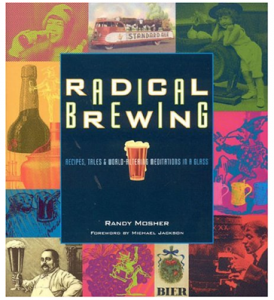
I was re-reading one of my favourite books (Radical Brewing by Randy Mosher) and enjoying an introductory “embellished history of beer”. Mosher writes a few notes on the history of beer and presents a comical reenactment of an ancient Sumerian motorcycle gang accidentally creating beer, complete with a tongue-in-cheek timeline of the history of civilization.
This led me to wonder – did beer truly lead to civilization, or is it the other way around?
What We Do Know:
Most archaeologists agree that Neolithic peoples first settled down to an agricultural lifestyle between 10,000 and 12,000 years ago, somewhere in the Fertile Crescent, which crosses from North Africa, across Europe and the Middle East and into Asia. Loose pinpointing suggests Mesopotamia, around modern-day Iraq.
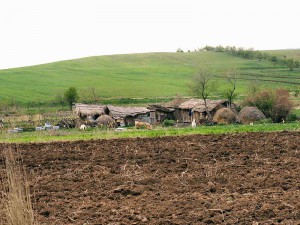
Pero Kvrzica
Abandoning a nomadic lifestyle to grow crops and build permanent shelters had obvious advantages, but also some serious disadvantages. For one, the crops available would not necessarily grow all year round, and so food needed to be stored. For another, the water supplies became quickly fouled by human and livestock habitation – infected water was as much a problem for Neolithic humans as it is for many peoples in impoverished areas today.
Neolithic humans, adapting to their new lifestyle, were quick to invent solutions. The silo and granary were quickly developed, and it is at about this time, roughly 10,000 years ago in the Middle East, that beer appears to have emerged.
Grains are excellent for storing during the winter, however they are a high-effort food source, requiring a series of labor-intensive processes before it becomes edible. One such process involves the extraction of sugars into water – the same process used to make beer.
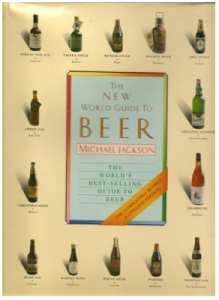
What We Don’t Know
There is a difference of opinion from experts and theorists around why grains were even cultivated when they take so much effort to turn into food. Many believe that the answer is due to the resilient nature of wild cereals and their ability to be grown in adverse conditions.
Over the past 50 years however, several archaeologists have wondered if grain was actually grown specifically for beer, and some suggest bread and other cereal-based foods may have actually occurred after the discovery of beer.
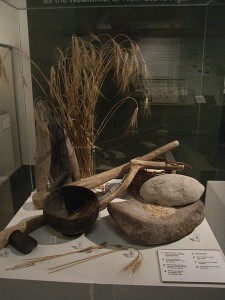
Photo by Notafly
Brian Hayden, of Canada’s Simon Fraser University, said: “Signs that people went to great lengths to obtain grains despite the hard work needed to make them edible, plus the knowledge that feasts were important community-building gatherings, support the idea that cereal grains were being turned into beer”.
Evidence from archaeological sites in Syria suggests ancient peoples would travel up to 100 kilometers just to find special grains. When local food sources were more readily available, a special purpose – such as the brewing of beer – seems highly likely.
Ancient Beer
What would the ancient beer have tasted like? Once again I’m inspired by Randy Mosher’s Radical Brewing. Mosher says that unlike modern day beers, hops were not added to beer until at least 1,100 CE, which leaves around 9,000 years of unhopped beer. Ancient beers would still add flavorings, and often bitter herb blends would be used both for taste and for their extra preservative qualities.

Wellcome Images
The beer would not necessarily be brewed using malted grains, either – in many ancient recipes a cake or loaf would be made first, which would then be submerged in water and exposed to wild yeast, which would then turn the bread and water into a fermented liquid.
Some of the old recipes are pretty wild, as evidenced by traces left in urns and vessels uncovered by keen archaeologists. Honey, fruit, psychotropic herbs, and mushrooms and all kinds of interesting (or dangerous) ingredients were used.
An Ancient Beer Recipe
Rather than a stone-aged beer, I have decided to share an ancient Sahti recipe, using hops as brewed by the Vikings and still being produced in Finland today.
The following recipe is adapted from a Sahti by Michael Agnew and Mark Roberts, and is available here.
This is an all-grain recipe, in metric, followed by US imperial measurements.
Brew Method: All Grain (measurements in Metric)
Batch Size: 18.9 liters
Efficiency: 75% (brew house)
STATS:
Original Gravity: 1.098
Final Gravity: 1.029
ABV (standard): 8.96%
IBU (tinseth): 11.17 (allow extra for the bitterness of the Juniper)
SRM (morey): 9.47
FERMENTABLES: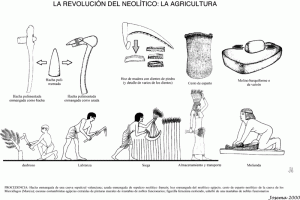
5kg – Pilsner Malt (62.5%)
2kg – Dark Munich (25%)
1kg – Rye (12.5%)
HOPS:
14g – Northern Brewer, AA: 7.8, Time: 60 minutes
OTHER INGREDIENTS:
35g – Juniper berries, Time: 60 minutes
1) Temperature: 50°C, Time: 30 minutes
2) Temperature: 62°C, Time: 30 minutes
3) Temperature: 70°C, Time: 30 minutes
Baker’s yeast
Optimum Temp: 18-22°C
Brew Method: All Grain (measurements in US Imperial)
Efficiency: 75% (brew house)
Stats:

unknown photographer
Original Gravity: 1.097
Final Gravity: 1.029
ABV (standard): 8.93%
IBU (tinseth): 11.31
SRM (morey): 9.45
FERMENTABLES:
11lb Pilsner Malt (62.5%)
4.4lb Dark Munich (25%)
2.2lb Rye (12.5%)
HOPS:
0.5oz – Northern Brewer, AA: 7.8, Time: 60 minutes
OTHER INGREDIENTS:
1.3oz – Juniper berries, Time: 60 minutes
MASH Schedule:
1) Temperature: 122°F, Time: 30 minutes
2) Temperature: 144°F, Time: 30 minutes
3) Temperature: 158°F, Time: 30 minutes
Bakers Yeast
Optimum Temp: 66-72°F
You can watch the video of the original here:
CHEERS!
I hope you have enjoyed this historical post and the recipe for Viking Sahti! For more resources on Ancient Beer, please take a look in these books.
As always, please leave a comment or ask any questions.
Read Next: The Best Foods To Pair With Cold Beer




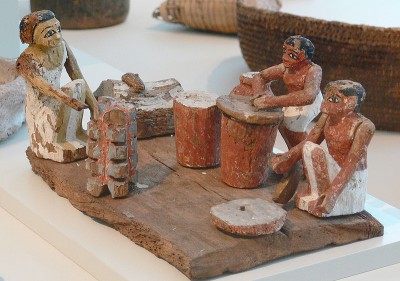
Hi Jesse, now thats what I am talking about!! Most feedbacks or comments that I leave on here is “my only niggle is lack of pictures” BOOM there you go your site is what I am talking about! Great use of pictures, fantastic content, great enthusiasm I can see this is your passion, and you know your stuff. Great site, this one will go far mate, well done. Regards Glenn.
Thanks Glenn!
I put a bit of extra care into the images for this post, I wanted them to be visually appropriate but also related to the topic – which was tricky.
Cheers!
Hi Jesse,
I was meandering the internet, stumbled across this article, and I must tell you it made my day!
Civilization began with beer? Perfect!
The thought that grain was grown to produce beer before bread was ever made is quite interesting.
I would rather drink beer than contaminated water any day. (or clean water for that matter)
We can thank the ingenuity of our neolithic predecessors for beer? That’s pretty cool.
I am not sure I would have wanted to exist within that 9000 years of beer without hops though.
It all makes sense to me now; I am wondering if my ancestors were part of that ancient Sumerian motorcycle gang 🙂
Cheers!
Val
Thanks for your comment, Val!
There is a ton of great (possibly embellished) information on beer history in the book “Radical Brewing,” I highly recommend it.
This is quite an interesting argument about the origins of beer. I would assume that the creation of beer and bread would end up going hand in hand, but I guess the question would be what compelled these ancient peoples to actually drink this? I would think they would be afraid that it might kill them or perhaps they didn’t know any better. And how did they ever know to bake the grains for bread? It is really fascinating how this all came to be discovered.
It certainly is Jessica!
One of the theories I have heard suggested that, due to the silo or granary being fairly new technology, they were not exactly watertight and the grain wold often get wet. As it fermented, the liquid would trickle out and contaminate the nearest water source.
After drinking this weird-tasting but funny giggle-water, and then NOT dying of water bourne diseases, Neolithic humans quickly put 2 and 2 together and traced the effect back to the wet grain.
This theory would indicate that grain as food came before grain as beer, but I still kind of like it.
So, there’s a relationship of desserts, specifically cake and beer? I mean the fact that the origin of beer comes from grains. Fascinating.
It’s interesting to know the fact that it is more recommended to drink relating to the dirty water due to the bacterial content.
I enjoyed reading such posts and I must say, the recipe you share, quite a meticulous approach.
Thank you Tar, I wish I could say it was my recipe – actually I just reproduced this one for historical interest. For my recipes, click here!
Recipes
Your welcome, Jesse. I personally can introduce to my friend who loves beer.
Hi there,
What a brilliant and fascinating read. I can see the logic in the chain of thought that beer was brewed thousands of thousands of years ago, due to the lengths and efforts that they went to just to grow and in some cases find exacting ingredients.
Great site, highly informative and often very entertaining read. Keep up the great work.
Thanks Derek
This is really interesting, I knew beer had been around for a long time, but I had no idea that this is how it played out. I’d love to see how some of these beers actually taste. It’s also cool that that Sahti recipe is still being used in Finland today. Definitely want to try it if I get the chance.
Glad you found it interesting! I highly recommend a read through any of Randy Mosher’s books for some fun factoids, or “A History of the World in Six Drinks” for an in-depth look at beer history.
Thank You
Interesting article on the history of beer, we take many things for granted today. Many of the things we have we just accept them and seldom wonder how they came about, I have one concern about the brewing of beer today?
Do you happen to know if beer was healthier for us before our grains became less health as they are today, just something I have been wondering about
Thanks Jeff!
I’m not too sure, but I do believe that organic grain would be healthier. If you are interested, try looking up organic malt on Homebrewing.org.
Certainly the German Purity law had a profound impact on beer – in fact, it made beer healthier by banning psychotropic and otherwise dangerous additives.
Cheers!
Thank You
I really did find your article interesting, I never really thought about how beer was discovered before.
Your article brought a question to my mind right away, how do they brew gluten-free beer?
Possibly this could be a future article on beer, grains have changed from the past and so regular beer is something some of us had to give up.
Hi Jeffrey, thank you for reading! Gluten free beer is usually made with malted Sorghum. I used to brew a commercial gluten free beer that used a liquid sorghum malt extract.
check out this article on Gluten Free brewing!
Cheers!